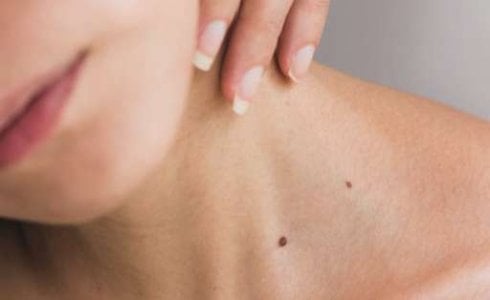This app can detect skin cancer with 100 per cent accuracy
- Replies 11
Skin cancer can be deadly if not caught early. But thanks to modern technology, we may have a powerful new tool to stop this disease in its tracks.
Researchers in the UK have developed an artificial intelligence (AI) app that can detect signs of melanoma, the most serious type of skin cancer, with an incredible 100 per cent accuracy.
It also correctly identified 99.5 per cent of all skin cancers, including dangerous melanomas and more common non-melanomas, and pre-cancerous growths on the skin nearly 93 per cent of the time.
The AI was also able to identify all 59 cases of melanoma it was tested on and only missed one out of 190 cases of any skin cancer.
This technology could truly save lives by spotting these stealthy cancers sooner. When found early, melanoma has a 5-year survival rate of 99 per cent. But tragically, over 57,000 people worldwide died from this disease in 2020 alone.
So, how does the app work? It uses a sophisticated algorithm trained on thousands of images of cancers. This teaches the AI system what the visual hallmarks of different skin cancers look like and the subtle signs that the naked eye can miss.
The key to diagnosing melanoma is paying attention to the ABCDEs:
Dr Kashini Andrew, who led the research, said the AI has learned so much from its training that it can sometimes outperform human doctors.
While dermatologists look for the ABCDEs, the AI uses an advanced pattern recognition system to analyse lesions.
According to Dr Andrew, 'This technology has the capacity to free up more time for patients that need urgent attention.'
Doctors hope that in the future, people can use the app at home to get an early assessment of any suspicious moles. This could lead to earlier diagnosis and treatment.
However, they cautioned that the app is not ready to replace dermatologists.
'We would like to stress that AI should not be used as a standalone tool in skin cancer detection,' noted Dr Irshad Zaki, who co-authored the study.
‘AI is not a substitute for Consultant Dermatologists.’
He went on to argue that while data shows the great promise of AI in the future provision of healthcare, human expertise is still crucial.

Early detection truly makes a difference. Thanks to modern technology, we may have a powerful new tool to stop this deadly disease sooner. But staying vigilant about sun protection and screenings remains essential!
What are your thoughts on this news, members? Let us know in the comments below!
Researchers in the UK have developed an artificial intelligence (AI) app that can detect signs of melanoma, the most serious type of skin cancer, with an incredible 100 per cent accuracy.
It also correctly identified 99.5 per cent of all skin cancers, including dangerous melanomas and more common non-melanomas, and pre-cancerous growths on the skin nearly 93 per cent of the time.
The AI was also able to identify all 59 cases of melanoma it was tested on and only missed one out of 190 cases of any skin cancer.
This technology could truly save lives by spotting these stealthy cancers sooner. When found early, melanoma has a 5-year survival rate of 99 per cent. But tragically, over 57,000 people worldwide died from this disease in 2020 alone.
So, how does the app work? It uses a sophisticated algorithm trained on thousands of images of cancers. This teaches the AI system what the visual hallmarks of different skin cancers look like and the subtle signs that the naked eye can miss.
The key to diagnosing melanoma is paying attention to the ABCDEs:
- Asymmetry - Most melanomas present as asymmetrically shaped moles with uneven edges.
- Border irregularity - Irregular borders of a mole can also indicate melanoma. The edges of a normal mole are uniform and smooth.
- Colour variation - A suspicious mole often contains several shades of brown, black, or tan, as well as pink, red, or purple spots, and it becomes more colourful as the cancer progresses.
- Diameter - Melanomas typically appear slightly larger than a pea or a pencil eraser, measuring about six millimetres or a quarter of an inch in diameter.
- Evolution over time - Melanoma grows in two phases: horizontal and vertical.
Dr Kashini Andrew, who led the research, said the AI has learned so much from its training that it can sometimes outperform human doctors.
While dermatologists look for the ABCDEs, the AI uses an advanced pattern recognition system to analyse lesions.
According to Dr Andrew, 'This technology has the capacity to free up more time for patients that need urgent attention.'
Doctors hope that in the future, people can use the app at home to get an early assessment of any suspicious moles. This could lead to earlier diagnosis and treatment.
However, they cautioned that the app is not ready to replace dermatologists.
'We would like to stress that AI should not be used as a standalone tool in skin cancer detection,' noted Dr Irshad Zaki, who co-authored the study.
‘AI is not a substitute for Consultant Dermatologists.’
He went on to argue that while data shows the great promise of AI in the future provision of healthcare, human expertise is still crucial.
Key Takeaways
- Dermatologists have developed an artificial intelligence (AI) system that can detect signs of melanoma, the deadliest type of skin cancer, with 100 per cent accuracy.
- The AI system was able to identify all 59 cases of melanoma it was tested on and only missed one out of 190 cases of any skin cancer.
- This AI technology is not yet available for experts to use on patients, but it shows promise for wide-reaching applications in skin cancer detection and potentially other types as well.
- Despite the advancements, researchers stress that AI should not be used as a standalone tool in skin cancer detection and cannot replace doctors.
Early detection truly makes a difference. Thanks to modern technology, we may have a powerful new tool to stop this deadly disease sooner. But staying vigilant about sun protection and screenings remains essential!
What are your thoughts on this news, members? Let us know in the comments below!








